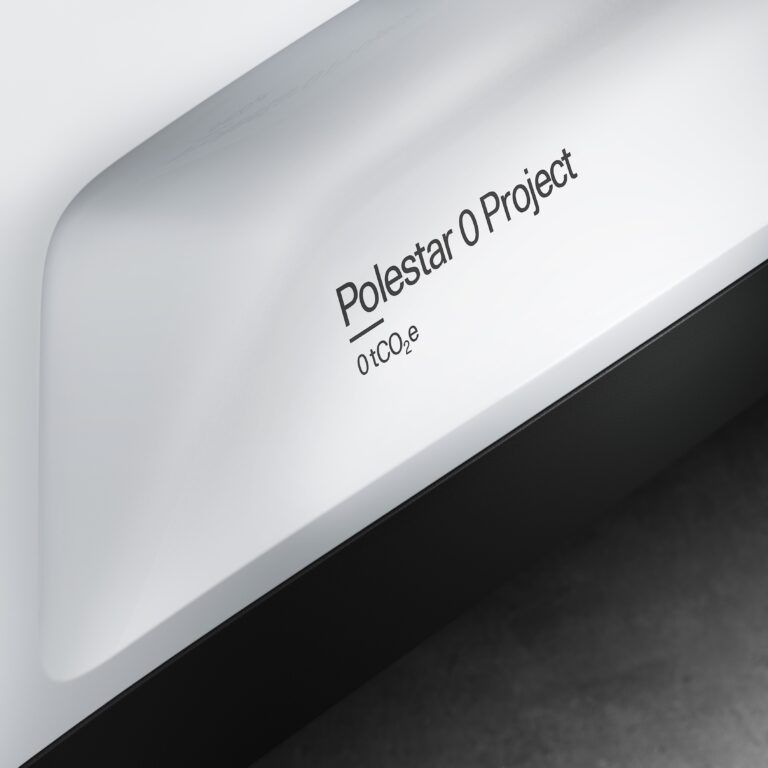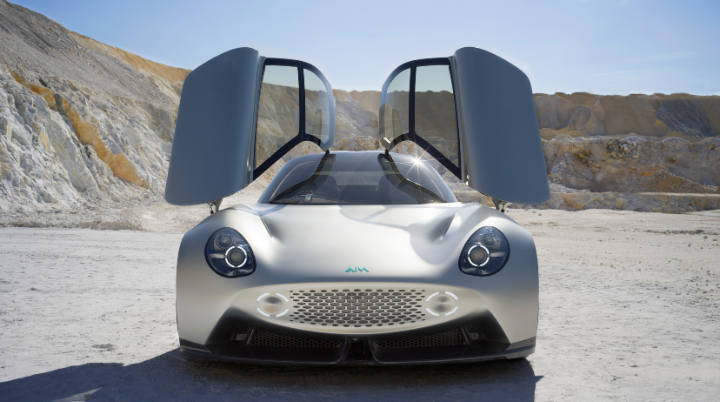Swedish car brand Polestar has unveiled a project to build a completely climate neutral passenger car by 2030, which will avoid emissions throughout the entire vehicle life cycle, not offsetting.
The Polestar 0 Project focuses on real emissions avoidance rather than compensation through planting trees or buying emission credits. It is the first overarching initiative of its kind.
Development will begin following a preliminary development phase of just under three years. Polestar, founded by Volvo and Geely, is focusing on fundamental cooperation across industries to address the net zero emissions challenge. The electric vehicle manufacturer is currently forming a collaboration between automotive industry suppliers, research institutions, start-ups, investors, governmental and non-governmental organizations.
Some of the world’s leading automotive industry suppliers, namely SSAB, Hydro, ZF, ZKW and Autoliv, are joining forces with intent to collaborate with Polestar in its development of a truly climate-neutral car – uniting companies across the auto supply chain to help the transport sector play its part in reducing climate impact.
The Swedish electric performance car company has signed Letters of Intent to collaborate with a selection of strategic partners in metals, safety, driving systems and electronics, on each area of focus on Polestar’s Life Cycle Assessments of its current vehicles’ carbon footprints. The LCAs have helped pinpoint the components and processes involved in producing cars that need to be reimagined to reduce and ultimately eliminate carbon emissions.
Nordic steel and metals producer SSAB intends to collaborate with Polestar on fossil-free steel, which could potentially replace not only conventional steel in a car but also other materials with significant carbon footprints.
Norwegian aluminum and renewable energy company Hydro intends to collaborate with Polestar’s experts on zero-carbon aluminum, while automotive systems supplier ZF intends to explore with Polestar how their innovation in electric powertrain and overall systems competence could eliminate carbon emissions and save resources.
Automotive safety supplier Autoliv intends to partner with Polestar on safety equipment like airbags and seatbelts with zero emissions, and automotive lighting manufacturer ZKW also intends to team up with Polestar on climate-neutral electrical control systems and wiring.
“It was clear from the start that this is not a solo-mission and we are very excited to present such a strong line-up of interested partners, all leaders within their fields. We are leveraging innovation and collaboration to address the climate crisis,” says Thomas Ingenlath, Polestar CEO.
Polestar has announced an invitation to other suppliers, researchers, universities, entrepreneurs, investors, and governmental and non-governmental organizations, for possible collaboration. On top of the open call, Polestar will be reaching out to researchers from across the globe through SDSN, the world’s largest academic network, working in support of the Sustainable Development Goals and the Paris Agreement.
Hans Pehrson, leader of the Polestar 0 Project and former Head of R&D at Polestar, said: “We believe in the exponential development of climate solution technologies. For this project, we must tap into solutions that are still in the innovation stage. Even more exciting is that the solutions we develop will not only benefit the automotive industry overall but help decarbonize manufacturing and society more widely as well. Wherever we look in the world we see materials like steel, aluminum, electronics and rubber. Imagine when we can make these materials climate-neutral to produce. Together, we can make the seemingly impossible possible.”
Polestar and its partners will focus their attention on the Polestar 0 project. Announced in 2021, this is Polestar’s industry-leading initiative with the goal to create a truly climate-neutral car by 2030 by eliminating emissions from the supply chain and changing the way that cars are made, rather than planting trees to offset CO2 emissions. Polestar decided to commit to this target for one simple reason: the transport sector is the fastest-growing greenhouse gas (GHG) emitting sector, expected to reach a share of more than 30 per cent of total GHG emissions in the future.





